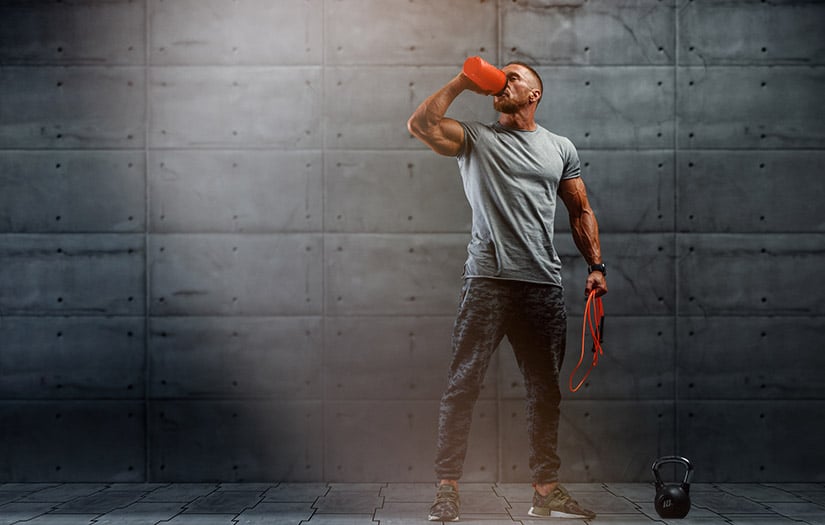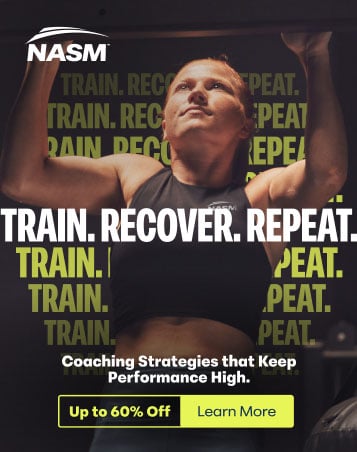Supplements have been at the heart of athletes for millennia. There are reports of athletes consuming non-traditional food items before the competition to improve performance as far back as the original Olympic Games.
Over the millennia, the science surrounding sports performance and sports nutrition has grown, as have our tools for improving athletic performance and recovery. Modern science has given us some tools in the form of supplements that can aid performance and recovery among athletes.
For sports nutrition coaches, these supplements can really help clients unlock their greatest potential as athletes.
Best Supplements for Athletes
While there are thousands of supplements on the market, many of them lack the scientific research to support their use. Each year dozens of new products come to market with bold claims.
However, there are only a handful that have been shown to be effective after thorough scientific scrutiny. Here are the best supplements for athletes, how they work, and some of the key considerations regarding them.
Creatine
Creatine is one of the most studied molecules in modern science. As of the publication of this article, there are over 62,500 peer-reviewed articles indexed in the National Library of Medicine on creatine.
Creatine works by enhancing your body’s natural ability to create ATP in one of the primary metabolic pathways, the phosphocreatine pathway. The human body can store ~100 grams of creatine at a given time, which is a relatively small amount considering how important it is to generating ATP.
Supplementing with creatine can increase your body’s creatine stores by ~30%, which increases the overall capacity of your phosphocreatine pathway.
Supplementation with creatine has been shown to:
1. Improve body composition among resistance training athletes
2. Improve performance over high intensity repeated bouts of exercise
3. Increase strength in short-time domain exercises
The best way for athletes to take creatine is to take between 3-7 grams per day, with ~5 grams per day being the appropriate average dose for most people. Individuals who are smaller can consume closer to 3 grams per day, while individuals who are larger can consume closer to 7 grams per day.
Beta-Alanine
Whereas creatine works on the phosphocreatine energy system, beta-alanine helps the body utilize glycolysis to a greater degree. Beta-alanine works by providing one of the key amino acids in producing a molecule known as carnosine. Carnosine functions inside cells to help sequester the hydrogen ions that glycolysis produces.
This allows muscle cells to create more ATP during glycolysis before hydrogen ions accumulate and slow down the reactions of glycolysis.
Essentially, supplementing with beta-alanine helps increase the capacity of the body to utilize anaerobic glycolysis by increasing carnosine stores.
A meta-analysis found that beta-alanine improves exercise performance in exercises lasting ~60-240 seconds, which is directly in the window during which glycolysis provides much of the energy production. The same meta-analysis found that there is little to no benefit for exercise that falls primarily within the phosphocreatine pathway (<60 seconds).
There is also some evidence that beta-alanine supplementation may improve lean body mass. However, this may be a result of having a greater amount of intracellular water and from increased work capacity, rather than a direct muscle building effect.
Like creatine, beta-alanine works through bioaccumulation and athletes should aim for ~5 grams per day. Most athletes find the best way to reach these 5 grams per day intake is to spilt the dosing into two 2.5 gram servings as higher doses can cause a tingling sensation known as paresthesia.
Caffeine
Caffeine may be the single most utilized supplement on the planet with ~75% of adults reporting utilizing caffeine in the form of coffee and ~50% of adults utilizing it daily.
Caffeine is often utilized by endurance athletes as it has been shown to reduce fatigue and increase time to exhaustion in longer duration exercise sessions. It is believed that caffeine may improve endurance exercise through a few mechanisms.
The first mechanism is by increasing alertness by blocking adenosine. It may also increase the availability of free fatty acids for metabolism during exercise as caffeine has been shown to increase the rate of fatty acids appearing in the blood stream and increase fatty acid oxidation during exercise. It has also been suggested that caffeine may be glycogen sparing.
In addition to endurance sports, caffeine may provide some benefit to strength and power athletes, although the research is a little less clear. For example, one meta-analysis found that caffeine supplementation increased upper body strength, but not lower body strength, which is a bit unusual. Furthermore, while the meta-analysis found a significant effect, most of the individual studies did not find an effect.
Most dosing guidelines recommend between 3 to 9 mg/kg of caffeine, with ~300 mg being a standard dose for most adult athletes. The higher end of the dosing spectrum should be approached with caution.
Protein Powder
Protein powders are incredibly helpful tools for athletes to reach the ideal daily protein intake, which is between 1.4 and 2.2 g/kg per day. Consuming an adequate amount of protein intake is critical for athletes as protein is essential not only muscle growth both recovery, bone health, and maintaining immune function.
While it is possible for people to obtain enough protein through their diet, it is often more practical and more efficient for them to utilize a protein supplement, usually in the form of a powder. While there are many different types of protein powder (e.g., whey, casein, plant protein) with slight differences in their efficacy for eliciting muscle growth, in the bigger picture, they are all effective forms of protein supplementation.
See "Do You Really Need to Take Protein Powder?" for more information on the efficacy of powderized protein.
Vitamin D
Vitamin D has been shown to be an important nutrient in ensuring athletes can perform at their highest level. While supplemental vitamin D is not necessarily a performance enhancer, preventing deficiencies in vitamin D has been shown to result in better performances among athletes.
For example, several studies have found that lower levels of vitamin D are associated with a lower VO2 max. Furthermore athletes who had low levels of vitamin D saw improvements in their VO2 max when supplementing with vitamin D.
This is an important supplement to consider as athletes report a relatively high rate of vitamin D deficiency. One meta-analysis found that over 50% of athletes have inadequate levels of vitamin D. While dosing strategies will vary person-to-person, supplementing with between 1000-2000 IU per day may be an appropriate starting point.
Do Athletes Need Supplements?
Not all athletes need supplements. Whether an athlete decides to take a supplement should depend on their unique situation, based upon the following criteria:
● The athletes sport of choice: athletes with higher demand sports may have a greater need for supplementation.
● The athlete’s level of competition: athletes who compete at higher levels of competition may have a greater need for supplementation.
● Their overall dietary quality: athletes with environmental constraints to high quality food may have a greater need for supplementation
● Blood panel results: athletes who show deficiencies in certain nutrients may require supplementation.
Should an Athlete Take a Multivitamin?
As a rule, athletes do not need to take multivitamins unless there is a specific need for them as consuming vitamins or minerals above the RDA does not appear to result in enhanced performance.
However, athletes who do not eat a well-rounded diet or who compete in weight-controlled sports, may be at an increased risk for vitamin and/or mineral deficiencies, in which case a multivitamin may provide some benefit.
Performance Enhancement Considerations
Athletes who are looking to enhance their performance should focus on the following things:
1. Total Energy Consumption: Athletes who are in energy balance perform better than athletes who are in a deficit.
2. Macronutrient Requirements of Their Sport: Each sport has different metabolic demands and requires a different number of macronutrients in the diet to ensure optimal performance. For example, a basketball player will require more carbohydrates and, in their diet, than a shot putter for meeting the metabolic demands of their sport.
3. Consume Adequate Micronutrients: Prevent deficiencies in micronutrients to ensure an athlete does not experience subpar performance from a deficiency in key vitamins or minerals such as vitamin D or iron.
4. Hydration: Ensure athletes are well hydrated.
5. Supplementation: Once the four other key components are achieved, then performance enhancing supplements such as creatine, caffeine, and beta-alanine should be considered.
Which Micronutrients Should Endurance Athletes Focus on?
In general, athletes usually meet most of their micronutrient needs. However, there are a few key micronutrients athletes should pay close attention to as there are relatively high deficiency rates among athletes in the following micronutrients:
● Vitamin D
● Folate (among younger athletes)
● Iron
● Magnesium
Other micronutrients to pay attention to as there are some deficiencies present, but not to a substantial degree:
● Vitamin B12 (female athletes at a higher risk compared to male athletes)
● Folate
Be sure to check out the NASM recipe book for athletes for great meal ideas for endurance athletes.
















